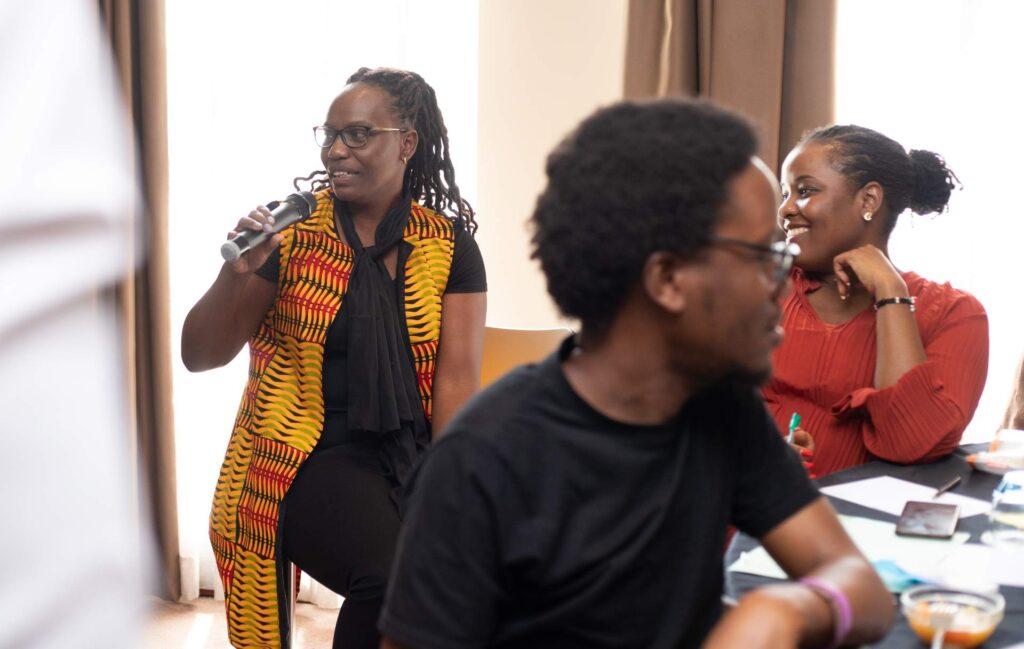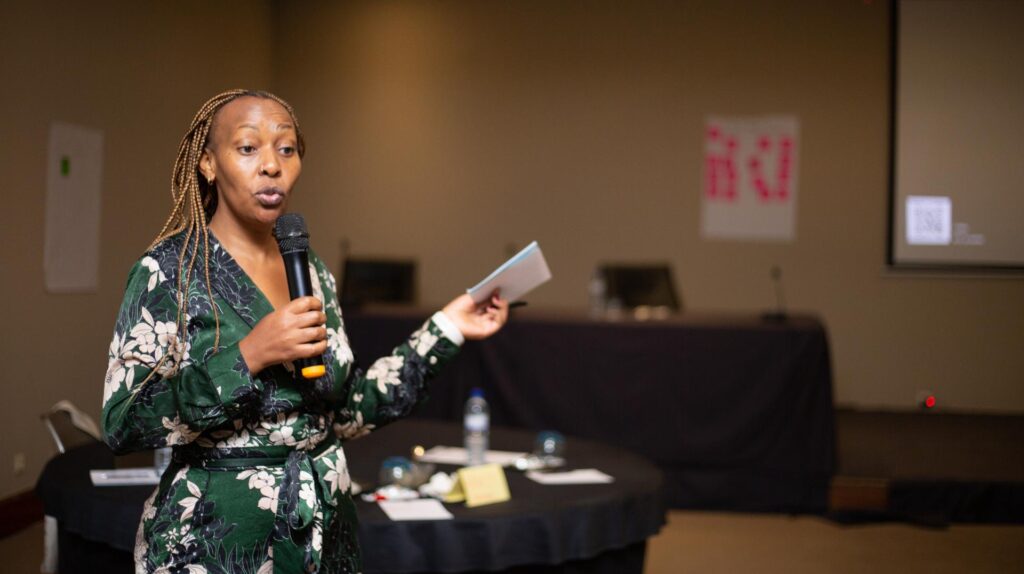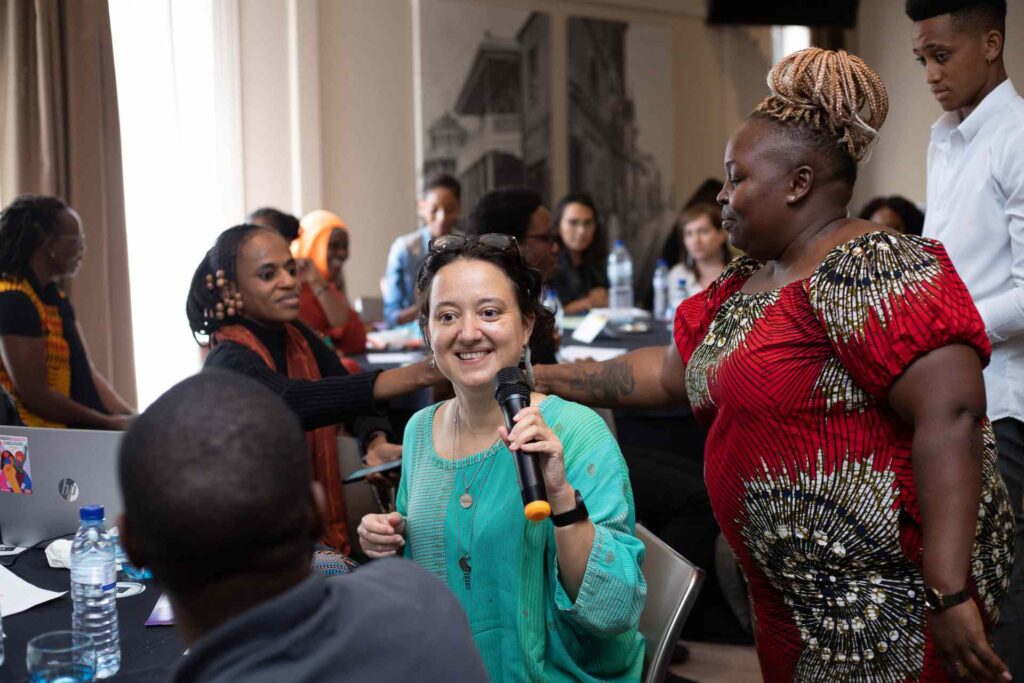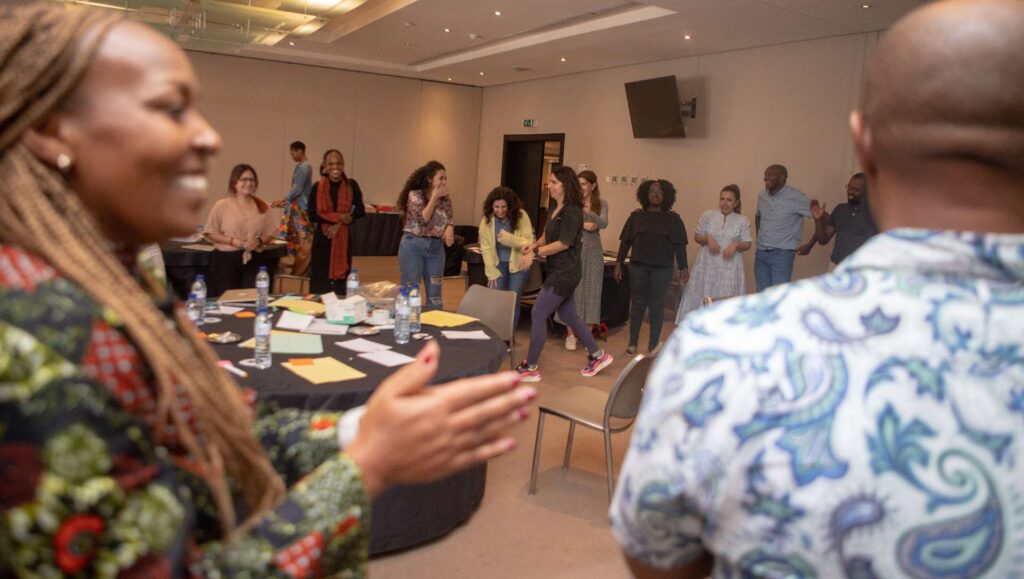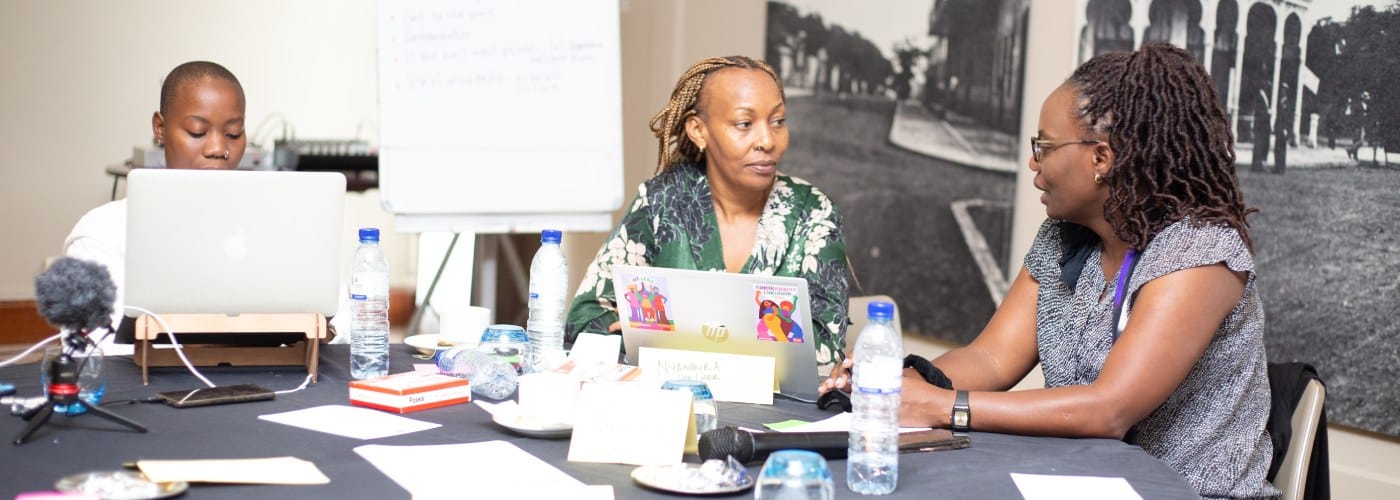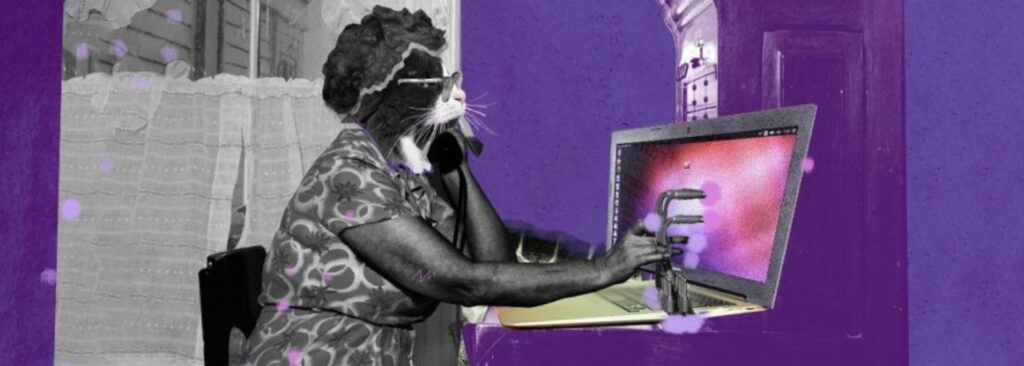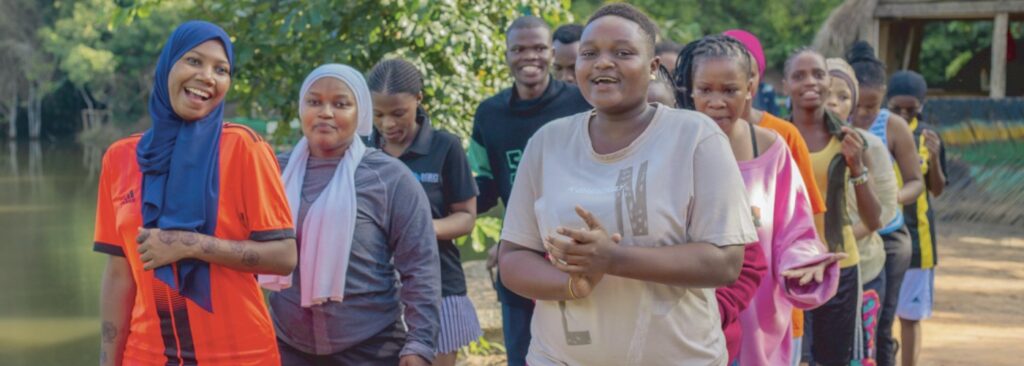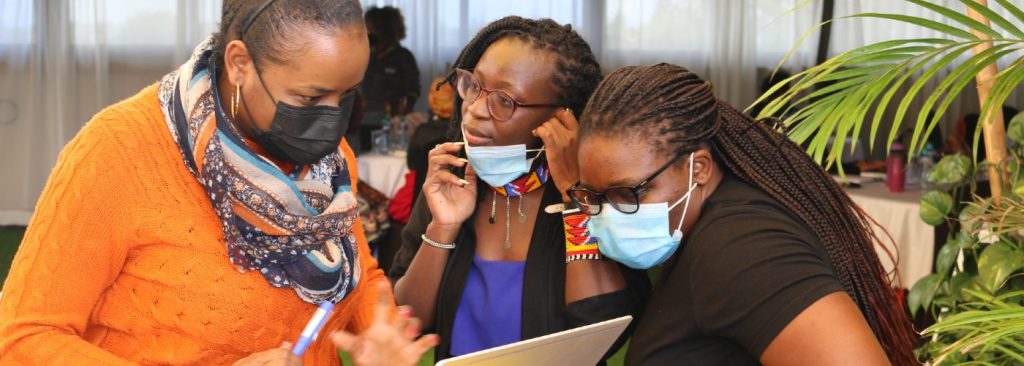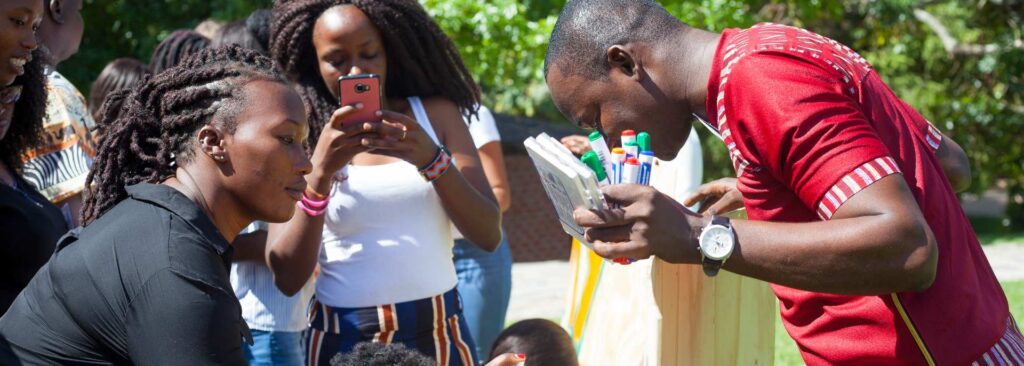Reflections on the We Lead linking and learning meeting in Maputo
February 21, 2023
By Nyambura Gathumbi, We Lead program manager
“I am not free while any woman is unfree, even when her shackles are very different from my own.”
This quote from Audre Lorde was on my mind during We Lead‘s entire linking and learning meeting event. After months of planning, engagement and negotiations with We Lead partners and rightsholders, it was finally time to connect and share experiences and lessons from our work.
Intense, positive energy
The meeting kicked off with intense, positive energy thanks to a diversity exercise led by the rightsholders. They chose it to not only to remind us of the diversity in our team, but also to help us appreciate what that diversity means in a meeting like this. Balancing the variables of age, geography, sexual orientation, gender identity, and the thematic focus of We Lead can be tricky. So the ice breaker helped to start the conversation about why We Lead exists and how we are actually putting into practice its values and principals.
My body is mine and nobody can decide about it but me! A message that I wish to share with every girl and every woman!
This was my first time meeting and interacting with all the partners and representatives of our rightsholders. It was also the first time I could immerse myself in a conversation with everyone about the program, while reflecting on my own role within it. The experience was both exciting and challenging. Exciting to listen to the diverse voices in the room and learn about their contexts and strategies; their highlights and challenges. Also exciting to learn about the huge scope of the program and its many moving pieces emerging in different contexts. Yet challenging to realize that all these moving pieces are dependent upon: constant review of operating contexts and strategies; good planning, adjustment, and coordination, and proper leadership.
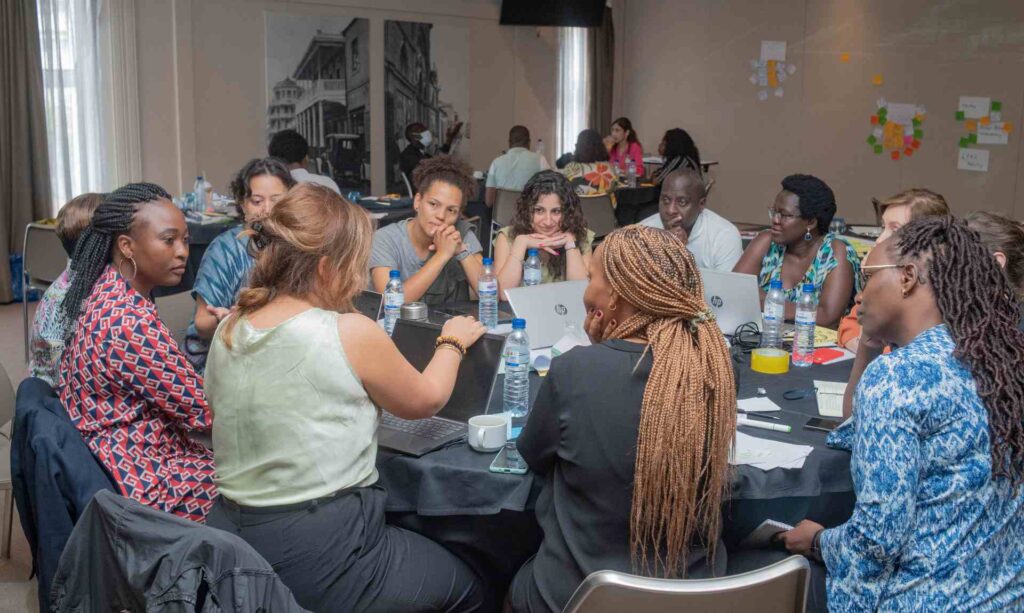
Powerful stories of change
During the meeting we had a good look at our work so far and the impact it’s having in the program’s countries. The most exciting part for me came when we started sharing stories of change. Each region presented their stories of impact in powerful and innovative ways. The Latin America team brought a mural made up of large images of diverse naked women’s bodies. They were covered with flowers and handwritten cards saying things like, “We exist, We resist, We decide.” The pictures were of rightsholders in Honduras and Guatemala and had been taken by a woman from one of the regional Communities of Action (COA). Each rightsholder chose which part of their body they wanted to show, as each part has a story – of pain, pleasure and other emotions.
We exist, We resist, We decide.
For me, this story was not only powerful, but also my highlight of the meeting. It did two things at once. The images brought to life the powerful voices of our young women rightsholders, while challenging all of us to personalize the struggle for our rights and how we perceive everything we do. For a program like We Lead, premised on feminist values and principles, this is an important way of reminding ourselves that the “personal is political.” An important message in feminist discourse and movement building. For me, these pictures are still very vivid in my mind. They remind me that my body is mine and nobody can decide about it but me! A message that I wish to share with every girl and every woman!
Comic relief from the MENA region
Our MENA regional team used a comedy skit to tell their story. Two presenters spoke while a third person showed the audience two cards that said “Laugh” and “Clap.” The presenters satirized the challenging contexts they have to navigate in the MENA region by comparing the situations in Jordan and Lebanon. Lebanon “has lots of explosions, poverty, and capitalism, but no electricity, government, or economy.” Jordan, on the other hand, “has a lot of government and an economy, but no sex.” This light-hearted comparison helped us understand the issues the MENA team deals with every day and showed the effectiveness of localizing We Lead’s theory of change and values. This localization has enabled them to connect despite their different challenges and to create a common identity around We Lead’s values.
The presenters also pointed out that We Lead helps us find commonalities by working in ways that are relevant to each country’s context without putting identity labels on people. The highlight in this story for me was the positive way these young women approached the challenges. Rather than whine and complain about their contexts, they used humor and focused on finding solutions.
“Othering” in Africa
The Africa team enacted scenes of failed attempts by individual rightsholders to penetrate decision-making spaces due to “othering” and abuse of power. They reminded us how othering is also perpetuated by supposed change makers who refuse to embrace diversity and are very selective about the issues they advocate for. This was an important message for all of us to reflect on how we show up and how grounded we are in the values and principles of social justice.
A critical question that kept coming up was: how can young women have a common voice and power if they aren’t organized or empowered, if they lack the skills and knowledge, or if they can’t manage to get into decision-making spaces in coordinated ways? How can they match their individual expectations with collective expectations in the fight against discrimination, marginalization, exclusion, and disempowerment?
So these last two stories were powerful reminders of how important it is to create a collective identity we can all adopt and a common vision we can all work towards. They showed us the value of building movements for social change: a key approach in We Lead.
Linking and learning cafes
Perhaps the most important activity of the meeting were the linking and learning “cafes.” The cafes grouped people per region and made schedules for others to move around and ask about the stories presented, the strategies behind the stories, and how replicable they are in other contexts. We asked ourselves lots of questions. How does the program create impact and how can that be sustained? How are we living the values of We Lead? What are we doing really well? What needs to change, and what can we do more?
We also asked ourselves about practices that we felt were not progressive. For instance, the question about chasing targets as opposed to working for impact. We asked ourselves how to ensure that we don’t get lost in just chasing numbers and not caring about real change. We spoke about how important impact is.
Wellness and collective care
We also discussed soft issues that either facilitate or impede our work. For example, wellness and collective care. How do we make sure we take good care of ourselves so we’re as effective as possible? This was an important topic, especially for We Lead stakeholders. Because of the nature of their work and the issues they advocate for, they struggle a lot with wellness and wellbeing. They have to find ways to unwind to remain engaged and productive. We talked about centering collective care in the program and finding more ways to support each other so we can all show up at our best.
Positive change is something to be celebrated
All the stories of change presented and the many important conversations we had have been documented in various forms and will be instrumental in shaping our work going forward. For me, this meeting was crucial as it made us pause, reflect, learn and plan for the next phase. As much as it made clear the enormous task that we still have ahead, it also showed us that change is possible. No matter how gradual it is, positive change is something to be celebrated. Always. And celebrate we did.
